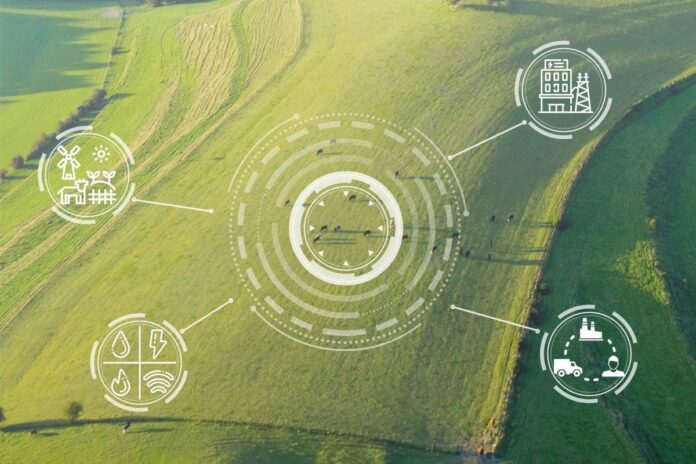UK-based Wyld Networks has launched a range of sensor-to-satellite LoRaWAN devices for IoT applications where there is little or no terrestrial connectivity. The new hybrid terrestrial and satellite IoT devices, marketed under the Wyld Connect name, transfer data directly to terrestrial networks or via a network of low-earth orbiting (LEO) satellites managed by satellite operator Eutelsat.
Cambridge-headquartered Wyld is working on trials with Bayer, Chevron, Treevia, Agrology, KWS, Agrocognitive, and Wezen Group, among others, it said. The satellite extension means its hybrid sensors and modules support 100 percent global coverage. They are targeted at remote applications in agriculture, environmental monitoring, energy, supply chain, and utilities. The full sensor-to-satellite service will be available in the second half of 2022.
Wyld Networks and Eutelsat are both engaged with the new Multimodal IoT Infrastructure Consortium (MMIIC), launched at the start of the year with US-based LoRaWAN network operator and cloud system vendor Senet and US-based IoT solution provider TrakAssure, also. The group’s remit, they said, is to run technical tests and pilots and also beat the rest of the market to deliver a “first” low-power wide-area (LPWA) solutio
Wyld Networks has already announced its hybrid IoT connectivity solution, Fusion, will be integrated into IoT trackers from TrakAssure, as the “first-to-market” terrestrial-and-satellite IoT solution for the supply chain industry. Initial test work has started to check LoRaWAN sensors switch between terrestrial LoRaWAN networks and low-earth orbit (LEO) nanosatellites, managed by Senet and Eutelsat, respectively.
The new Wyld Connect terminal can connect directly to existing sensors, and its Wyld Connect modules can be integrated into IoT sensors as an embedded solution. A statement said: “Data is delivered from the satellite ground station or terrestrial LoRaWAN gateway through Wyld’s cloud-based Fusion platform, which also allows IoT sensors to be registered, configured, authenticated, and managed remotely.”
Wyld Networks has introduced a beaconing technology with Eutelsat that ensures the IoT sensor remains in sleep mode until a satellite is available to collect data. It has also announced a new deal, also, with LoRaWAN network provider American Tower.
Alastair Williamson, chief executive at Wyld Networks, said: “The huge demand for IoT… is being held back by the lack of global connectivity. Only around 15 percent of the earth’s surface is covered by cellular networks and it is simply not practical or cost effective to install costly, high maintenance network infrastructure over tens of thousands of square kilometres. Only satellites can provide this coverage and in contrast to expensive, power hungry VSAT systems, LEO satellites provide the low-cost solution needed to catapult IoT growth around the world.”
Luc Perard, senior vice president of IoT at Eutelsat, said: “Existing LPWA networks such as LoRaWAN are ideal to connect low power assets and sensors that don’t need to send much data, but they currently rely on a limited terrestrial infrastructure. Wyld’s new sensor-to-satellite LoRaWAN terminals and modules now make it possible to harness our network of LEO satellites to deliver low-cost, hybrid terrestrial and satellite connectivity over 100% of the earth’s surface.”

